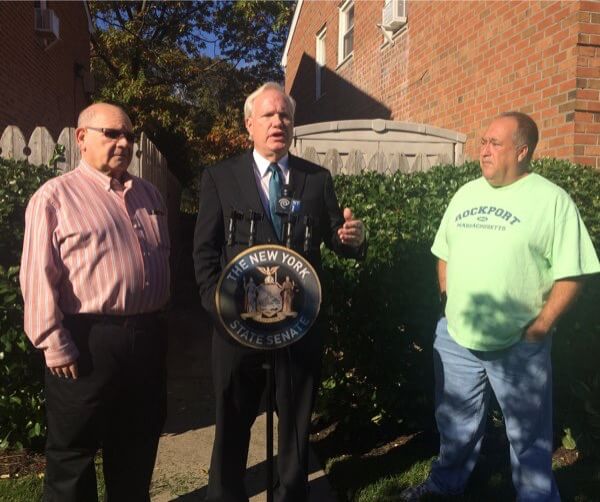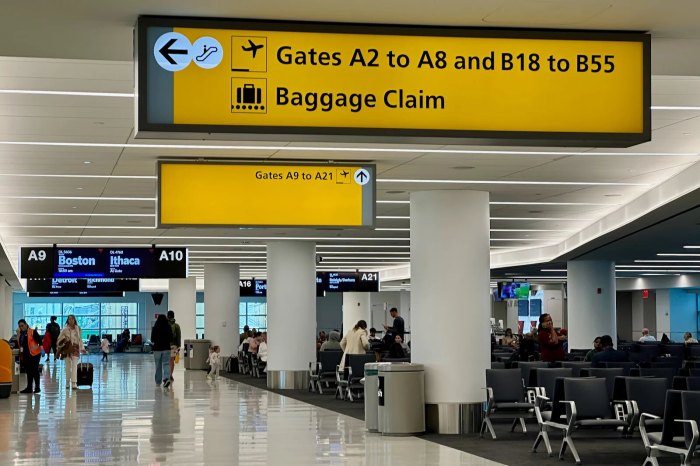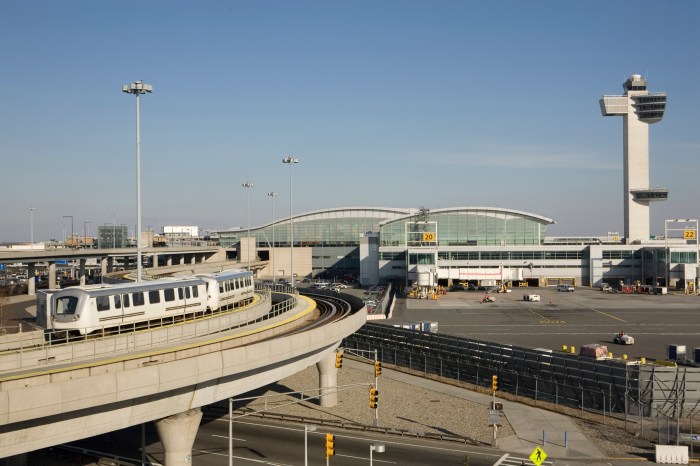By Mark Hallum
Residents of a Bayside condominium complex have been overburdened by noise from the Clearview Expressway, just feet from their houses, for up to two decades with no action on the part of the city Department of Transportation.
State Sen. Tony Avella (D-Bayside) stood with Gene Englese, president of the Bayside Towne House Condos, and condo owner Norman Fishman to discuss the quality-of-life issues posed by the freeway and to ask DOT to extend the sound wall that ends at about 208th Street.
About 124 people live in the Bayside Towne House Condo complex at 18-66 Corporal Kennedy St. Fishman is just one of many tenants who are aggravated by the constant hum and honking from the highway, are forced to live with exhaust fumes from vehicles in traffic standstills and worry about the vibrations from the road undermining the foundations of their homes.
Avella said the homeowners pay some of the highest property taxes in the state and condo owners pay a higher rate than regular one-family and two family homes.
“They’re really hit with property taxes, and all they ask for is a little quality of life,” Avella said. “It’s an accepted principle now of putting up the sound walls along highways to cut down on noise and pollution.”
He called upon DOT to put in a wall while he was in the City Council, he said, but was told that sound barriers are only constructed during times when major work on roads is underway or entirely new roads are being built.
Fishman said the sound is persistent from morning until night and the vibrations from the road are a constant disturbance.
“I’ve been on the board for 15 years, and each year we have tried to have this wall constructed,” Englese said, explaining how recent road work has made the noise pollution even worse. “It was built and it stopped at Baybridge, at the border of our complex, and it doesn’t continue at all any further. The last couple of weeks there has been such construction going on, it’s been bumper-to-bumper traffic for weeks… We’ve been asking for the wall for about 20 years.”
Sound barriers come with a price tag of about $1 million per 1,000 feet, Avella said, adding that he would like to see the policy changed to address quality-of-life issues for residents such as these.
DOT follows federal guidelines on this matter, according to Diane Park, a spokeswoman from the agency.
“Under the Federal Noise Regulation 23 CFR 772, noise walls are only installed as part of a capital project reconstruction program when the project meets specific criteria,” she said. “These federal guidelines indicate that noise studies and noise abatement evaluations are conducted as part of a new major construction of highways or bridges or a reconstruction that will significantly change the horizontal or vertical alignment or increase the number of through traffic lanes of an existing roadway.”
The state has the funds to construct a wall, according to Avella, but as long as the policy does not allow for barriers to be built unless it involves another building project, the issue will not be able to move forward for residents.
Reach reporter Mark Hallum by e-mail at mhall



































